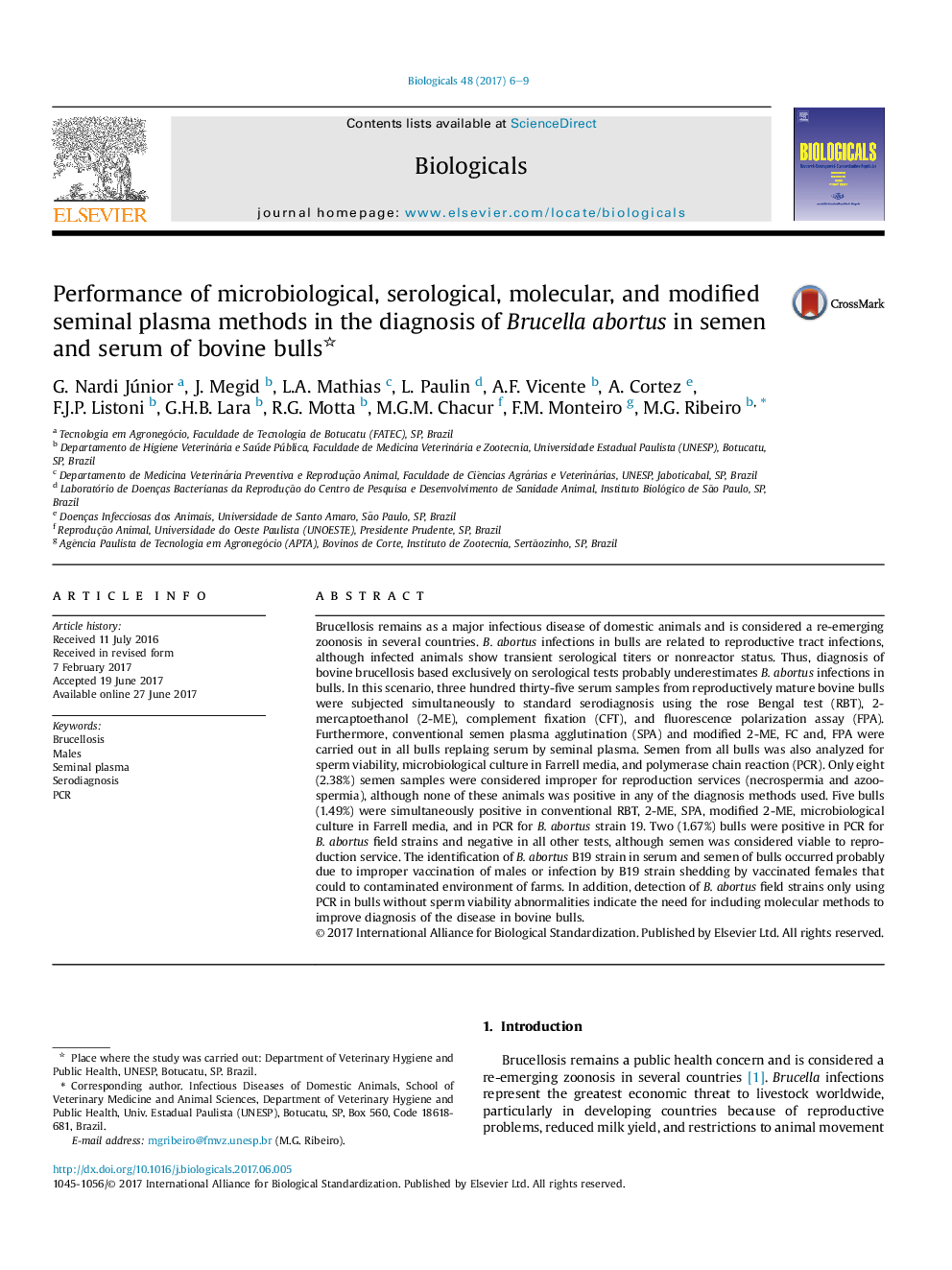| کد مقاله | کد نشریه | سال انتشار | مقاله انگلیسی | نسخه تمام متن |
|---|---|---|---|---|
| 5517062 | 1543036 | 2017 | 4 صفحه PDF | دانلود رایگان |
Brucellosis remains as a major infectious disease of domestic animals and is considered a re-emerging zoonosis in several countries. B. abortus infections in bulls are related to reproductive tract infections, although infected animals show transient serological titers or nonreactor status. Thus, diagnosis of bovine brucellosis based exclusively on serological tests probably underestimates B. abortus infections in bulls. In this scenario, three hundred thirty-five serum samples from reproductively mature bovine bulls were subjected simultaneously to standard serodiagnosis using the rose Bengal test (RBT), 2-mercaptoethanol (2-ME), complement fixation (CFT), and fluorescence polarization assay (FPA). Furthermore, conventional semen plasma agglutination (SPA) and modified 2-ME, FC and, FPA were carried out in all bulls replaing serum by seminal plasma. Semen from all bulls was also analyzed for sperm viability, microbiological culture in Farrell media, and polymerase chain reaction (PCR). Only eight (2.38%) semen samples were considered improper for reproduction services (necrospermia and azoospermia), although none of these animals was positive in any of the diagnosis methods used. Five bulls (1.49%) were simultaneously positive in conventional RBT, 2-ME, SPA, modified 2-ME, microbiological culture in Farrell media, and in PCR for B. abortus strain 19. Two (1.67%) bulls were positive in PCR for B. abortus field strains and negative in all other tests, although semen was considered viable to reproduction service. The identification of B. abortus B19 strain in serum and semen of bulls occurred probably due to improper vaccination of males or infection by B19 strain shedding by vaccinated females that could to contaminated environment of farms. In addition, detection of B. abortus field strains only using PCR in bulls without sperm viability abnormalities indicate the need for including molecular methods to improve diagnosis of the disease in bovine bulls.
Journal: Biologicals - Volume 48, July 2017, Pages 6-9
